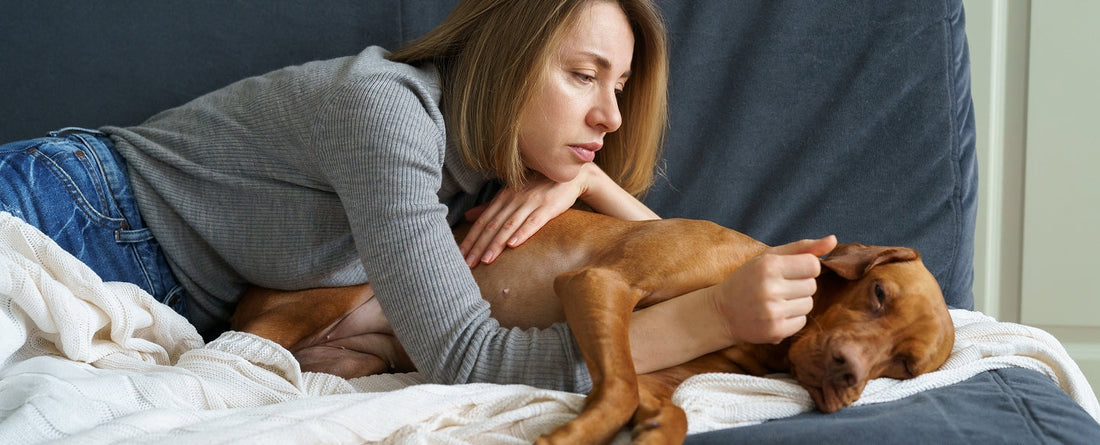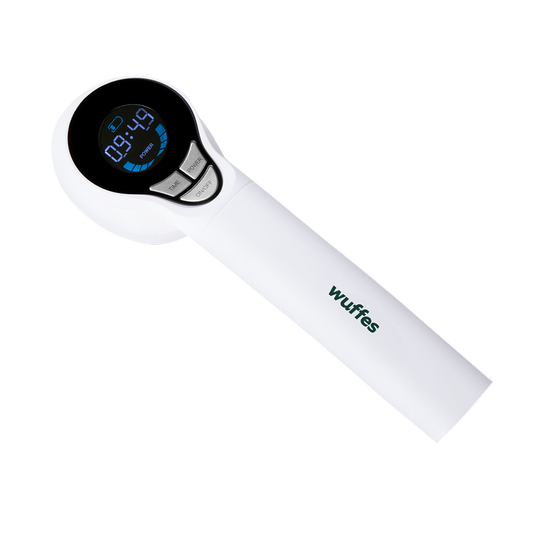Exercise is a key part of your dog’s daily routine, keeping them fit, happy, and healthy. However, not all activities are ideal for every dog. Sometimes, strenuous exercise can cause more harm than good, especially if it’s done improperly. One common issue many dog owners face is vomiting after exercise.
Why do dogs vomit after exercise?
Just like us, dogs need time to properly digest their food. When they engage in intense physical activity right after eating, their stomachs may struggle to break down food efficiently. This can lead to an upset stomach, and in some cases, vomiting.
Here are some common reasons why dogs vomit after exercise:
-
Exercising Too Soon After Eating
If your dog exercises vigorously before their meal has had time to digest, food can slosh around in their stomach, which may trigger nausea. Additionally, their stomach may produce extra acid in an attempt to break down the food, leading to acid reflux - an uncomfortable and potentially harmful condition for dogs. -
Dehydration
Sometimes dogs get so caught up in their play that they forget to drink water. Without proper hydration, your dog may become overheated or dizzy, which can lead to nausea and vomiting. Ensuring your dog has access to water during and after exercise is essential. -
Overexertion
Not all dog breeds are built for strenuous activity. Breeds like Havanese, English Bulldogs, Shih Tzus, Maltese, and Pugs tend to have lower stamina than more active breeds. If they’re pushed beyond their limits, they can become overly tired and stressed, leading to vomiting or other health issues. Over-exertion can also increase the risk of injuries like fractures or muscle strain. -
Joint Health and Exercise
If your dog’s joints aren’t in great shape, they may be more prone to issues during physical activity. Keeping their joints healthy and strong through proper supplements and care can help them handle exercise better and reduce the risk of vomiting or other problems.
How can you prevent dogs vomiting after exercise?
Preventing vomiting after exercise is simpler than you might think. With a little patience and a few adjustments to your routine, you can ensure your dog stays healthy and enjoys their physical activities.
-
Feed Smaller Portions
Avoid overfeeding your dog, especially before exercise. Large meals can increase the likelihood of digestive issues and vomiting. -
Allow Time for Digestion
It’s important not to exercise your dog right after they eat. Start with gentle activities like a slow walk to help them warm up. Wait at least an hour after eating before engaging in any strenuous activity. It’s also a good idea to let your dog take water breaks every 15 minutes to stay hydrated. -
Use Digestive Supplements
Adding digestive supplements to your dog’s diet can make a big difference. Look for probiotics, which help support healthy digestion and ensure your dog is absorbing essential nutrients. Multivitamins that include organic fiber, such as vegetable fiber and starch, can also aid in digestion. -
Avoid Over-Exertion
Pay attention to your dog’s breathing patterns during exercise. If they start panting heavily or seem out of breath, it’s time to slow down or switch to a gentler activity. Pushing your dog too hard can lead to both physical and digestive stress.
Conclusion
Exercise is a fun and important part of your dog’s life, but it’s crucial to do it right. By paying attention to your dog’s limits, ensuring proper hydration, and allowing time for digestion, you can prevent vomiting and keep your dog healthy and happy. Just remember, a little care goes a long way in making sure exercise is safe and enjoyable for both of you!











